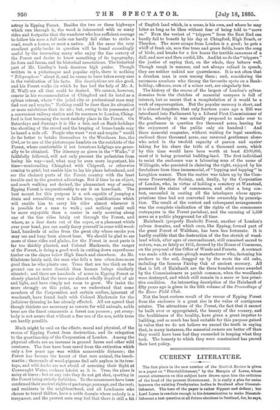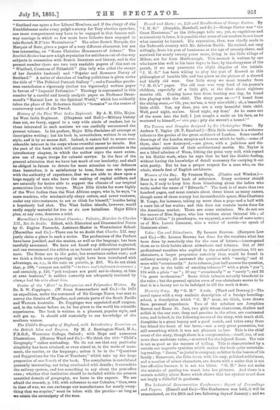CURRENT LITERATURE.
The first place in the new number of the Scottish Review is given to a paper on " Disestablishment," by the Marquis of Lorne, whose recent utterances on this subject have drawn upon him the criticism of the head of the present Government. It is really a plea for union between the existing Presbyterian bodies in Scotland after Disestab- lishment. The tone of the paper is rather flippant and defiant ; but Lord Lorne is resolute enough in his determination to make Disestab- lishment a test question at all future elections in Scotland, for, be says,
"Scotland can spare a few Liberal Members, and if the clergy of .the Establishment make every pulpit a stump for Tory election speeches, one more compartment may have to be engaged in that famous rail- way carriage in which so few seats have hitherto been engaged to take Scotch M.P.'s to Westminster." The other Scotch Marquis, the Marquis of Bate, gives a paper of a very different character, but not less interesting, on "Some Christian Monuments of Athens." The Scottish Review has now a high reputation for articles on out-of-the-way subjects in connection with Scotch literature and history, and in the present number there are two very readable papers of this sort on "Winifred, Countess of Nithsdaill " (the lady who aided the escape of her Jacobite husband) and "Popular and Romance Poetry of Scotland." A series of sketches of leading politicians is given under the title of "The Political Portrait Gallery " ; and a Canadian gentle- man contributes a vigorously (rather too vigorously) written paper in favour of "Imperial Federation." Theology is represented in this number by a careful and keenly analytic paper on Professor Drum- mond's "Natural Law in the Spiritual World," which has evidently taken the place of Dr. Robertson Smith's "heresies" as the centre of controversy north of the Tweed.



































 Previous page
Previous page